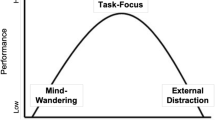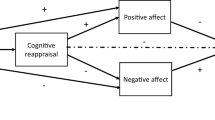Abstract
The relationship between reaction time and both state and trait personality variables was investigated in 37 participants after 30 h of sleep deprivation. Regression analyses suggested that endorsement of greater Novelty Seeking, anger/hostility, and depression/dejection, and less confusion, was associated with greater reaction time declines on one Multi-Attribute Task Battery index after sleep deprivation. Further, greater Novelty Seeking and depression/dejection, and less vigor/activity, was associated with greater reaction time declines after sleep deprivation on another Multi-Attribute Task Battery index. Additional correlational analyses indicated that better reaction times were associated with greater Novelty Seeking and lower anger/hostility prior to sleep deprivation, and less confusion/bewilderment following sleep deprivation. Findings suggest that both state and trait personality variables are associated with reaction time performance following sleep deprivation.
Similar content being viewed by others
References
American Psychological Association. (1992). Ethical principles of psychologists and code of conduct. American Psychologist, 47, 1597–1611.
Caldwell, J., & Ramspott, S. (1998). Effects of task duration on sensitivity to sleep deprivation using the Multi-Attribute Task Battery. Behavioral Research Methods Instrum Comput, 30, 651–660.
Cloninger, C. R. (1987). A systematic method for clinical description and classification of personality variants. Archives of General Psychiatry, 44, 573–588.
Cloninger, C. R., Przybeck, T. R., & Svrakic, D. M. (1991). The tridimensional personality questionnaire: U.S. normative data. Psychol Rep, 69(3 Pt 1), 1047–1057.
Cloninger, C. R., Svrakic, D. M., & Przybeck, T. R. (1993). A psychobiological model of temperament and character. Archives of General Psychiatry, 50, 975–990.
Comstock, J. R., & Arnegard, R. J. (1992). The multi-attribute task battery for human operator workload and strategic behavior research. (Tech Memorandum 104174). Hampton, VA: NASA Langley Research Center.
Corcoran, D. W. J. (1965). Personality and the inverted-u relation. British Journal of Psychology, 56(2 & 3), 267–273.
Eysenck, H. J. (1967). The biological basis of personality. Springfield: Charles C. Thomas.
Harkins, S., & Geen, R. G. (1975). Discriminability and criterion differences between extraverts and introverts during vigilance. Journal of Research in Personality, 9, 335–340.
Harrison, Y., & Horne, J. A. (2000). The impact of sleep deprivation on decision making: a review. J Exp Psychol Appl, 6(3), 236–249.
Jha, S. S. (1988). Personality and vigilance during sleep deprivation. Indian Psychologist, 5(2), 49–54.
McNair, D., Lorr, M., & Droppleman, L. (1981). Profile of mood states. San Diego, CA: Educational and Industrial Testing Service.
McNair, D., Lorr, M., & Droppleman, L. (1992). POMS manual: profile of mood states. San Diego, CA: Edits.
Mu, Q., Mishory, A., Johnson, K. A., Nahas, Z., Kozel, F. A., Yamanaka, K., et al. (2005a). Decreased brain activation during a working memory task at rested baseline is associated with vulnerability to sleep deprivation. Sleep, 28(4), 433–446.
Mu, Q., Nahas, Z., Johnson, K. A., Yamanaka, K., Mishory, A., Koola, J., et al. (2005b). Decreased cortical response to verbal working memory following sleep deprivation. Sleep, 28(1), 55–67.
Pilcher, J. J., & Huffcutt, A. J. (1996). Effects of sleep deprivation on performance: a meta-analysis. Sleep: Journal of Sleep Research & Sleep Medicine, 19(4), 318–326.
Smith, A., & Maben, A. (1993). Effects of sleep deprivation, lunch, and personality on performance, mood, and cardiovascular function. Physiology & Behavior, 54, 967–972.
Taylor, D. J., & McFatter, R. M. (1999). The effects of sleep deprivation and personality on performance on cognitive tasks. Sleep, 22(Suppl. 1), S151–S152.
Taylor, D. J., & McFatter, R. M. (2003). Cognitive performance after sleep deprivation: does personality make a difference? Personality and Individual Differences, 33, 1179–1193.
Verwey, W. B., & Zaidel, D. M. (2000). Predicting drowsiness accidents from personal attributes, eye blinks and ongoing driving behaviour. Personality and Individual Differences, 28(1), 123–142.
Acknowledgements
This study was funded by a contract from the Defense Advanced Research Projects Agency (Drs. Mark S. George and Daryl E. Bohning). The Brain Stimulation Laboratory is also supported in part by the Stanley Foundation, the National Alliance for Research on Schizophrenia and Depression, the Borderline Personality Disorders Foundation, and the National Institute of Neurological Disorders and Stroke grant RO1-AG40956.
Author information
Authors and Affiliations
Corresponding author
Rights and permissions
About this article
Cite this article
Carlozzi, N.E., Horner, M.D., Kose, S. et al. Personality and Reaction Time after Sleep Deprivation. Curr Psychol 29, 24–33 (2010). https://doi.org/10.1007/s12144-009-9068-8
Published:
Issue Date:
DOI: https://doi.org/10.1007/s12144-009-9068-8




